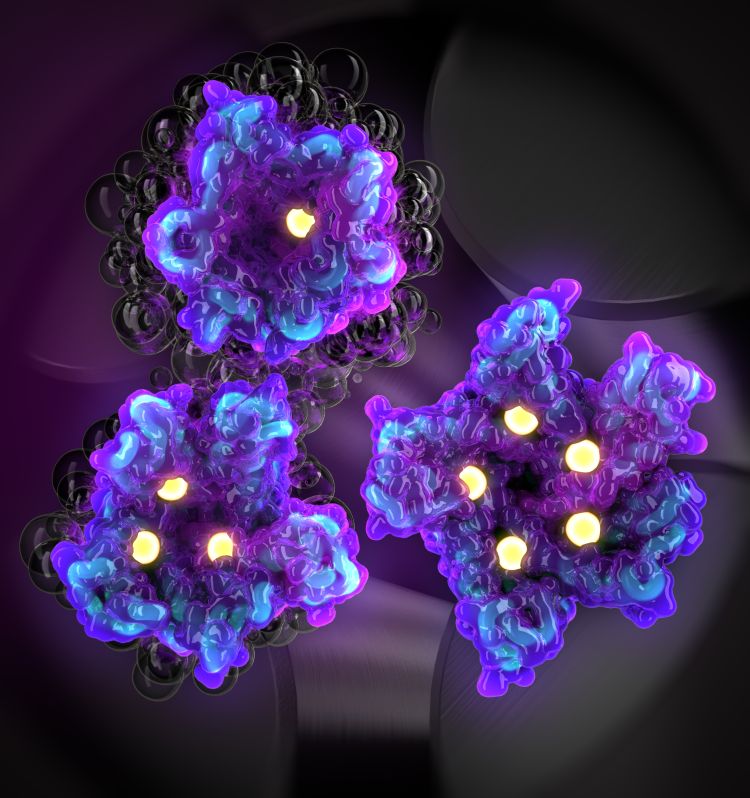Scientists secure funding to push the boundaries of bioscience research

The funding provided through BBSRC’s Pioneer Awards allows investigators to explore untested bioscience ideas that challenge conventional thinking and open up novel areas of exploration.
Two researchers in the Faculty of Biological Sciences, Dr Juan Fontana and Professor Frank Sobott, are to receive a share of £12 million to pursue visionary bioscience research.
The projects, which have been funded by Biotechnology and Biological Sciences Research Council (BBSRC) will explore early-stage ideas at the frontiers of bioscience and will use state of the art technology at the Astbury Centre.
By drawing upon unconventional thinking and approaches, researchers hope to make exciting discoveries with the potential to transform our understanding of the rules of life.
Dr Juan Fontana will be leading on a £200,000 project to understand the molecular mechanisms that result in influenza virus pandemics, also known as ‘reassortment’.
To generate infectious virions (particles) the influenza virus genome, the instructions on how to make new viruses, travels from the nucleus (where it is produced) to the plasma membrane (where the viral particles are generated). When co-infection between two different influenza virus strains occur, differing combinations of genomes from the parent viruses can be produced, potentially generating influenza virus pandemics with devastating consequences.
“I’m really excited about the possibility of exploring how a polarised cell system can unravel the molecular mechanisms that drive outbreaks of influenza,” said Dr Fontana, Associate Professor in the School of Molecular and Cellular Biology.
“So far, research on how reassortment occurs has been performed in non-polarised cells, which differ significantly from polarised epithelial cells, the type of cells found in the airway and which influenza virus infects.”
It is possible that everything we know about influenza virus reassortment is incorrect.
Professor Frank Sobott, Chair in Biomolecular Mass Spectrometry in the School of Molecular and Cellular Biology, will be developing new mass spectrometry tools that can further our understanding of oligonucleotides (OGNs), an important but somewhat neglected group of biomolecules.
Scientists hold promise that they can have similar properties to artificial antibodies which can be potentially used for drugs and vaccines. He said:
“Currently the structural biology toolkit for OGNs is underdeveloped compared to proteins. Many of the interesting molecules are either too small for electron microscopy or too dynamic to easily yield x-ray structures.
“Whilst other techniques, such as NMR spectroscopy has delivered valuable insights, they are not fast and require considerable amounts of sample.
“This project will enable us to pioneer hydrogen-deuterium exchange mass spectrometry, a new and bespoke approach that can reveal how oligonucleotides adopt their defined three-dimensional shapes and interact with other molecules.
This is an almost entirely unexplored method and will build on our excellent technology here at the Astbury Centre.
About the awards:
BBSRC’s pioneer awards scheme supports original and potentially transformative research that is at an early stage of development. The funded projects represent either a significant departure from existing lines of investigation within the research field or an entirely new line of inquiry.
Focused on BBSRC’s understanding the rules of life theme, the projects open up new research directions relevant to fundamental bioscience questions and have the potential to substantially shift current and future thinking about key topics.
The projects:
- are original and visionary, challenging current thinking and paradigms
- focus on exploring and revealing novel insights and theories relating to our fundamental understanding of biological systems
- are early stage and untested, lacking preliminary data and perhaps involving creative or unconventional approaches to the research challenge
- may involve a high level of uncertainty or require a range of exploratory investigations, such that while there are clear aims to explore, the outcomes are neither predictable nor guaranteed
- involve any combination of experimental, analytical and theoretical work, potentially crossing disciplinary boundaries, including non-bioscience fields




